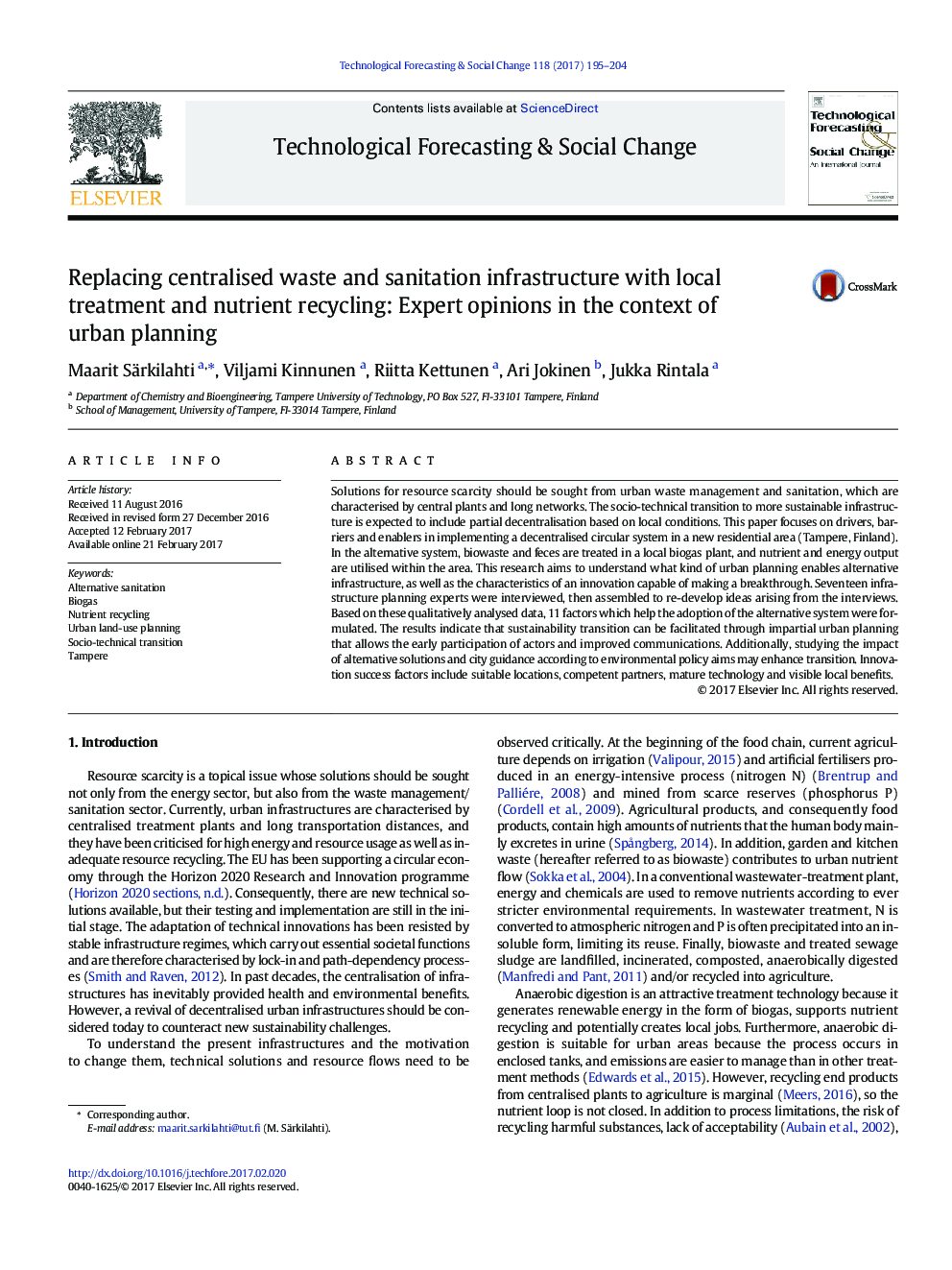| Article ID | Journal | Published Year | Pages | File Type |
|---|---|---|---|---|
| 5037044 | Technological Forecasting and Social Change | 2017 | 10 Pages |
â¢Feasibility of a decentralised circular system is explored in expert interviews.â¢Suggestions for facilitating sustainability transition are made.â¢Socio-technical transition requires early participation of different actors.â¢Communication breaks within city organisation hinder transition.â¢Visible local benefits can make alternative infrastructure attractive.
Solutions for resource scarcity should be sought from urban waste management and sanitation, which are characterised by central plants and long networks. The socio-technical transition to more sustainable infrastructure is expected to include partial decentralisation based on local conditions. This paper focuses on drivers, barriers and enablers in implementing a decentralised circular system in a new residential area (Tampere, Finland). In the alternative system, biowaste and feces are treated in a local biogas plant, and nutrient and energy output are utilised within the area. This research aims to understand what kind of urban planning enables alternative infrastructure, as well as the characteristics of an innovation capable of making a breakthrough. Seventeen infrastructure planning experts were interviewed, then assembled to re-develop ideas arising from the interviews. Based on these qualitatively analysed data, 11 factors which help the adoption of the alternative system were formulated. The results indicate that sustainability transition can be facilitated through impartial urban planning that allows the early participation of actors and improved communications. Additionally, studying the impact of alternative solutions and city guidance according to environmental policy aims may enhance transition. Innovation success factors include suitable locations, competent partners, mature technology and visible local benefits.
